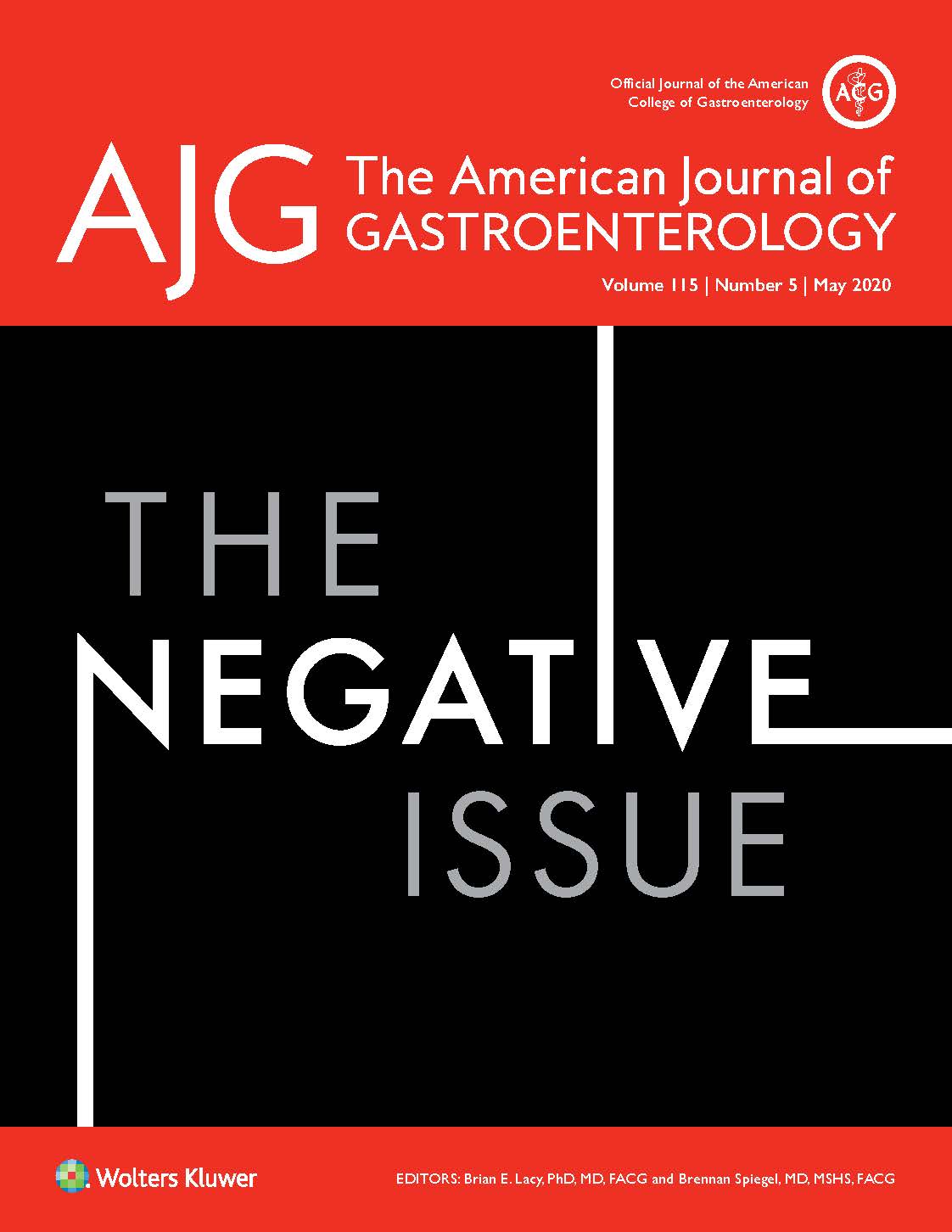Editorial: Negative is Positive
Special AJG Negative Issue
The field of medicine is constantly evolving. New diagnostic tests, innovative therapeutics and groundbreaking surgical techniques are announced on nearly a daily basis. Advances in medicine, and in all aspects of health care delivery, depend upon rigorous and innovative research programs. Research can take place in any number of different settings (e.g., a basic laboratory, the community, an outpatient clinic, the endoscopy suite) and be categorized as basic science, epidemiologic, translational or clinical in nature.
Scientific advances frequently develop in a series of slow, methodical steps that build upon each other, an incremental process that often takes years and occasionally decades. Less commonly, a major scientific advance develops within a short period of time, surprising the medical community. These advances, whether rapid or slow to evolve, are typically announced to the scientific community in peer-reviewed journals, such as The American Journal of Gastroenterology. Traditionally, only research studies that produced a positive result were published. The rationale behind this was that it was believed that only a positive result could be used to change medical care. Thus, the demonstration that a new medication was statistically better than placebo, or that a new diagnostic test was better than an older test, would both be considered a positive finding and thus considered eligible for publication.
However, we believe that significant information can also be learned from studies that do not produce positive results; these are often referred to as “negative” studies. Consider a study comparing a new, expensive medical test to an older, but inexpensive medical test. The study would be considered negative if there was no difference between the two tests, and thus might not get published. However, that information would be invaluable to the health care system, as the older test could be preferentially used while saving valuable health care dollars. A host of other examples could be provided involving medications, endoscopic and surgical techniques, and other diagnostic tests.
Although once considered unpublishable, we strongly believe that a methodologically sound, well-crafted study with negative results is just as valuable, and sometimes even more valuable, than a scientific study with positive results. For that reason, we are proud to offer this issue of The American Journal of Gastroenterology which focuses on negative studies.
Following the success of our first “negative issue” published in 2016, our latest negative issue features a wide range of informative articles that will appeal to our readers regardless of specialty. A few highlights include:
- A systematic review providing up to date information demonstrating that proton pump inhibitors do not cause dementia by Khan, et al. Access these findings
- The potential association of PPI therapy in a number of gastrointestinal malignancies is investigated and reported by Lee and colleagues. Access these findings.
- An interesting survey by Kurlander, et al. provides information about common misconceptions regarding PPI safety, which is clinically relevant as some clinicians inappropriately stop PPI use in patients who truly need therapy. Access these findings.
- The role of serum ammonia in predicting clinical outcomes is reviewed in a timely article by Rockey and colleagues. Access these findings.
- The results of a large study investigating a novel agent for Crohn’s disease are presented by Sands, et al. Access these findings.
- An important study by Forbes, et al. showing that prophylactic clipping does not prevent delayed post-polypectomy bleeding will be of interest to all who perform endoscopy. Access these findings.
This edition has a number of other important “negative” studies in addition to several essential review articles, unique images and videos, very educational editorials, and interesting correspondence. We hope that you find reading this “negative” issue as informative and interesting as we did when we assembled these innovative articles. We are sure that the information provided will help you better care for your patients.
Remember, “negative is positive.”
Brian E. Lacy, MD, PhD, FACG & Brennan M. R. Spiegel, MD, MSHS, FACG, Co-Editors-in-Chief



